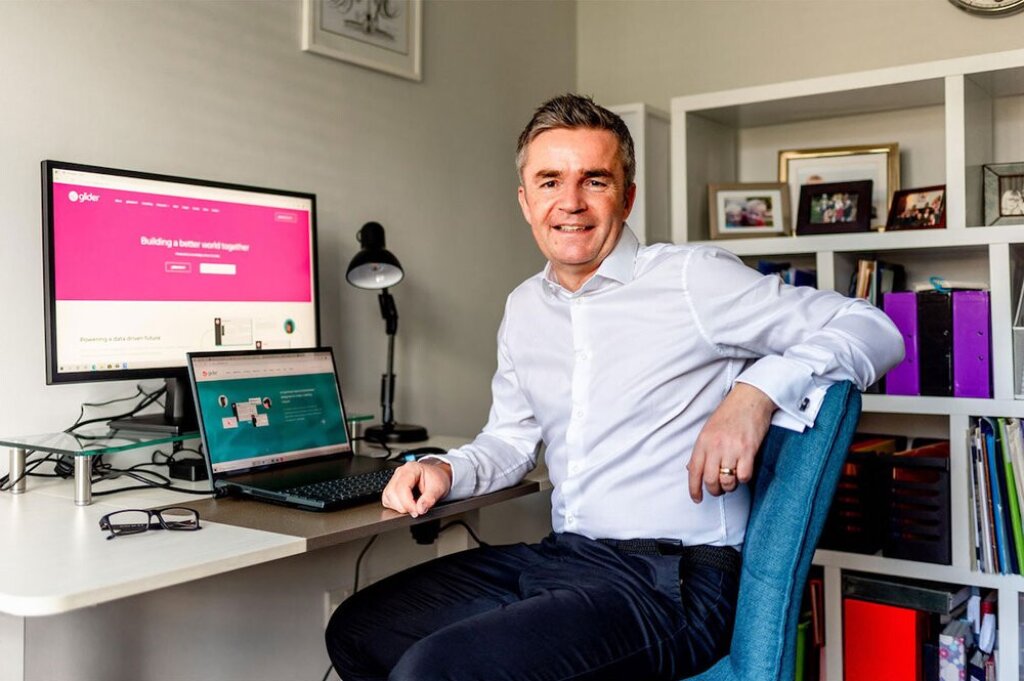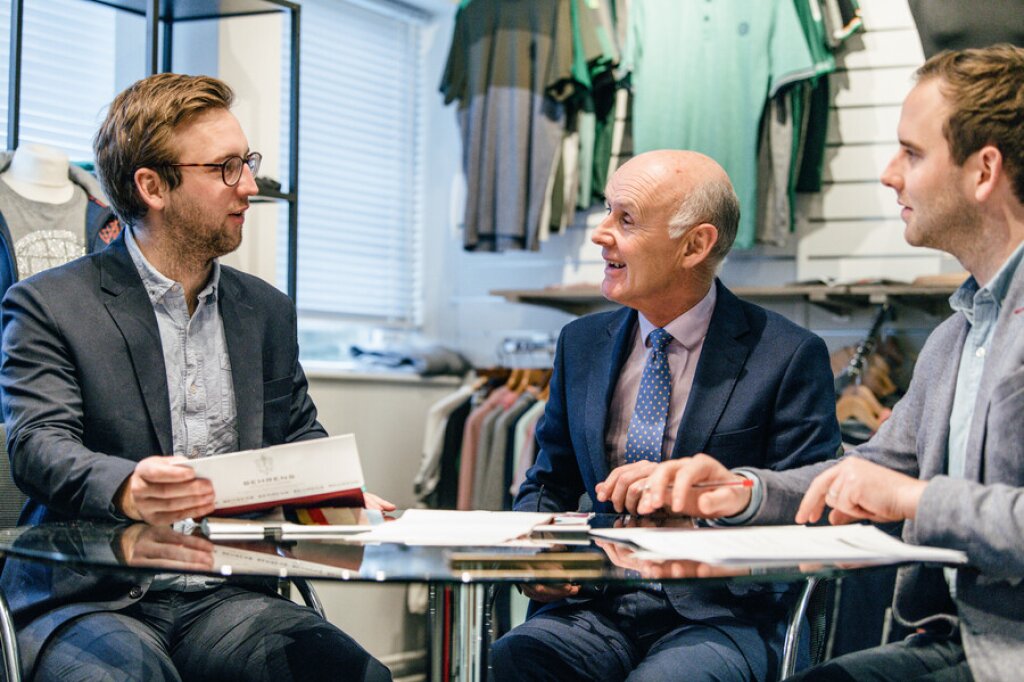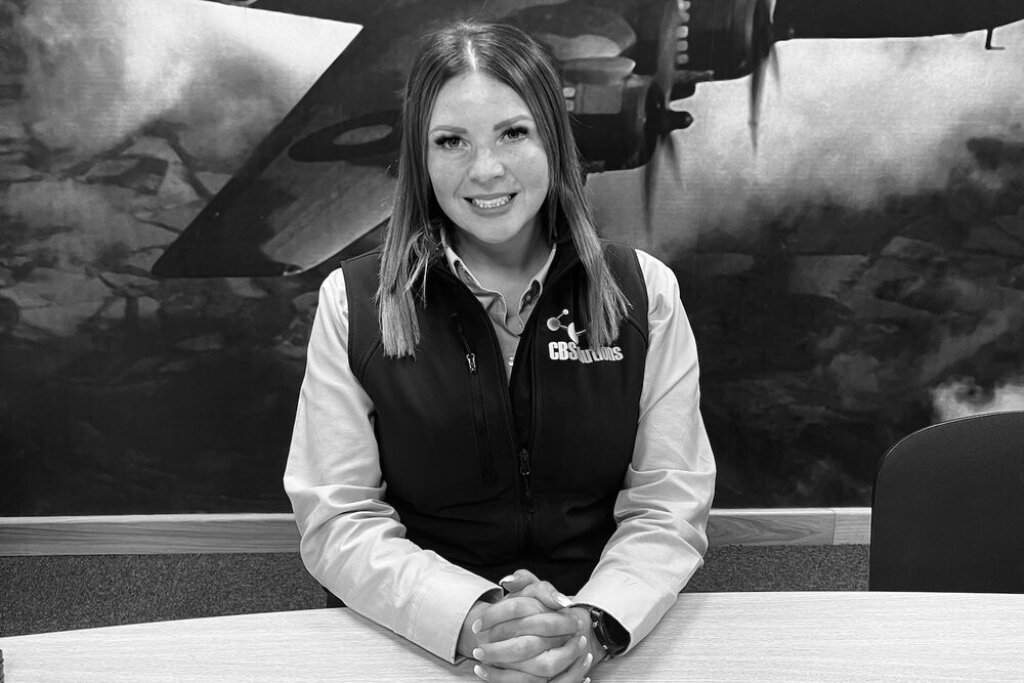“It was like ‘swiping right’ on a dating app,” laughed Stuart Bell, describing how his company, Glider Technology, was matched high-calibre construction industry-focused support through the Be the Business Boards programme. “We were really impressed that Be the Business had pulled together a panel that was so closely aligned to our company and our ambitions.”
Stuart is director of sales and marketing at Glider, a digital services provider for the built environment. The company was established by managing director Nick Hutchinson and technical director Steve Rukuts in 2016, the year the government launched its Construction Strategy. This mandated, among other things, that construction companies become more efficient in designing, creating and maintaining buildings and infrastructure. Information management in the built environment suddenly became a very hot issue – and Nick and Steve, who’d gained a wealth of relevant experience in the sector, spotted the market opportunity and founded Glider to exploit it.
Glider has grown steadily over the past six years, and boasts a clutch of blue-chip companies, including the Defence Infrastructure Organisation (part of the Ministry of Defence), Deutsche Bank, Google, Deloitte, Lendlease, Kier Group and Mace Group, among its customers. It employs 30 full-time staff, and expects to make profits of £1m in the year ending October 2022, up 30 per cent on 2021, on a forecast turnover of £3.5m.
Help with funding routes
Glider has big ambitions. It wants to increase turnover to £7.5m within the next two years, principally by growing the proportion of its income from software licensing (currently 40 per cent) to overtake information management consultancy and services (currently 60 per cent). One of the main things it wanted from a board was advice on funding options to help execute its growth plans.
“The business has been bootstrapped from day one,” says Nick. “It has grown through organic profits. But we recognise that we require additional capital to accelerate our software product development roadmap and to increase our sales and marketing reach. We definitely don’t want to go down the private equity route, because we want to retain full control of our direction of travel.” Glider is also very keen to grow "responsibly", added Stuart.
“We have a young and hungry team: our demographic is largely between 25 to 35, and given the life stage and career stage of our team, we need to grow the business to create the headroom for them to develop, and expand their responsibilities. Therefore, as well as wanting to build value in the business, we want to create opportunities for our people such that they can thrive and grow. I have worked in other businesses where you win work at almost any cost. That is just not our motivation or our culture. We are nothing without our people: it is their intellect and skills set that make us successful in supporting our customers’ ambition.”
“The board highlighted the importance of not becoming too ‘corporate’, or having so many layers of management that the senior leadership team is distanced from what’s going on in the marketplace day to day”
Stuart Bell
Time to work on the business
In addition to being impressed by the calibre and breadth of experience of the board in the first meeting, the team recalled a standout piece of advice from one board member, Jamie Scott (see box at the end of article). “It was ‘JFDI’,” remembered Nick. “After listening to our company presentation and plans, he basically told us that we know what we’re doing and the direction we want to go in, so don’t procrastinate, just get on with it.”
The advice was both reassuring and a wake-up call. “Like a lot of SME [small and medium-sized business] founder directors, Nick is the busiest man in the company, and there was always something more pressing in his in-tray,” commented Stuart. “One of the big takeaways from that first meeting was for Nick to carve out time to explore some funding opportunities. One of the first things he did was identify a financial services business that could introduce us to some different funding avenues and support our application for funds. In the past we’d used a local accountancy firm, which was appropriate for our early stages of our growth. They were essentially bookkeepers, and in terms of strategic finance matters, Nick wore the FD’s hat – among several others. We suddenly had more than one extra pair of hands – and the board was the catalyst for that.”
But feeding back the conversation and agreed actions from the first board meeting to the other three members of the management team – the head of services, the head of product, and the head of development – “immediately gave us all more focus,” explained Nick. “It was a question of, of all the million things we could do, what should we prioritise in order to strike forward in the right way?”
Setting the right business priorities
In the second board meeting, in the spring, the conversation centred around how the management team would prioritise spend once they’d successfully raised funds. “It was a question we’d already asked ourselves, of course, but having an independent panel asking us those questions made us focus more closely on potential answers,” says Stuart.
They also discussed how to drive research and development, expanding their customer base, and how the senior leadership should safeguard the small business "feel" and culture as the company scaled – something particularly important in what is a wholly virtual business.
“The board highlighted the importance of not becoming too ‘corporate’, or having so many layers of management that the senior leadership team is distanced from what’s going on in the marketplace day to day,” said Nick. “People at ‘the coal face’ are your eyes and ears into the marketplace, as well as being your brand ambassadors.”
The board also catalysed the development of a more structured strategic plan, as Stuart explained. “We’ve introduced objectives, specific measures and key results, on a quarterly basis, linked to our overall strategic growth objective, and we are now reflecting those in personal development plans for our teams. And because we are not beholden to the market or slaves to shareholder statements, we can change direction when we want – but based on our continual testing and refining of our basic plan.”
For example, they recently honed their service and software proposition, so they can focus on marketing and selling the things that are most closely matched to their core skills and software capabilities, and that are aligned to their stratcegic objective. “That means we’re not overstretching ourselves, or creating ambiguity on our project deliverables, or developing new service lines unnecessarily, and we are now communicating this very specific proposition to the market, and winning and delivering work on that basis.”
“We’ve introduced objectives, specific measures and key results, on a quarterly basis, linked to our overall strategic growth objective, and we are now reflecting those in personal development plans for our teams.”
Stuart Bell
Managing by exception
This had been the direction of travel anyway, added Stuart. But the involvement of the board is imposing more urgency and discipline on the process – as it is on the management of the business generally. Weekly and monthly management meetings are now run on a "by exception" basis: “Instead of patting ourselves on the back about all the good stuff we’re doing, we focus on things that are causing us concern – like a particular client issue or inter-departmental frictions,” he explained. Meetings are more structured, with every department providing input and taking targeted actions from the meetings.
With the funding round nearing completion, in the next board meeting the team will discuss their investment priorities with the board, along with their ideas about how to scale responsibly.
Carving out time to take a helicopter view of the company, and discussing ideas with a board of people who’ve seen and done it all before, has been invaluable, acknowledges Nick. “But funding was key – and that ‘JFDI’ moment gave us confidence and direction to get on and do it.”
Stuart would definitely recommend other small businesses to take the opportunity to join the Be the Business Boards programme. “It’s like being able to walk into the Dragons' Den, but actually get advice from them too,” he said.
The board
Mathew Bewley is managing director of 3B Training, a national health and safety training company.
Andrew Cowdery was, until recently, industry co-chair, Defence Growth Partnership, created to strengthen defence export sales and promote growth and prosperity in the UK defence sector.
Rose Stewart is an entrepreneur, and currently director of RasDigital, which provides thought leadership in the technology and digital development sector.
Emma Loxton is a partner at McKinsey, where she specialises in the travel and defence sectors.
Jamie Scott is operations director at manufacturing company INVIST.



